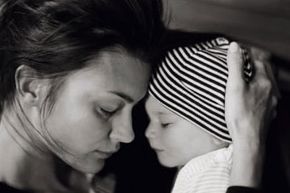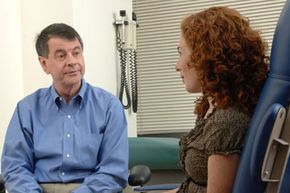Pregnancy's fluctuating hormone levels are responsible for skin discoloration, strange food cravings, drooling, and bloated feet. Some women get dry eyes, hemorrhoids and acid reflux. Hormones can cause rapid hair growth during pregnancy and hair loss after the fact.
Lots of the physical side effects of pregnancy are well-known. Hemorrhoids and "morning sickness" are punch lines in countless movie scenes. But aside from the prenatal bursting-into-tears-over-nothing scene, the emotional effects aren't as familiar. Skyrocketing estrogen levels after delivery can cause extreme depression and anxiety, typically referred to as postpartum depression, or PPD.
Advertisement
It doesn't make a great punch line, so it's more behind-the-scenes than, say, ice cream and pickles. But it's not at all rare. Up to one in five women experiences symptoms of PPD [source: Anderson]. These can include excessive crying, sadness, a feeling of emptiness and despair, appetite changes, insomnia, fatigue and, sometimes, extreme anxiety. Most women have at least a few of these symptoms to some degree after delivery, but they're usually mild and fade away after a week or two, as hormone levels start to balance out. In cases of PPD, they last, and they're pronounced enough to interfere with a mother's ability to care for her newborn. Some sufferers have thoughts of suicide or of harming the baby.
It's obvious these symptoms would be difficult for mothers to cope with. But they may be hard for babies to cope with, too. Infants don't know it, of course, but their mothers' depression could cause them long-term problems. (As if depressed new moms need more guilt.)
The good news is PPD is treatable.
In this article, we'll find out how postpartum depression may affect the babies of suffering moms. We'll learn about the potential cognitive issues that can result from a stilted relationship between mom and newborn, and see how those issues may extend into childhood. We'll also look into treatment options for PPD. The earlier a mom gets help, the better it is for everybody.
Cognitive effects on babies of depressed moms are a pretty logical result of PPD if you consider the mommy-centric nature of that first year of life. In most birthing centers, a newborn is placed on the mother's bare chest immediately after delivery. It's the first thing the baby feels outside the womb, and it's designed to facilitate bonding.
Advertisement


